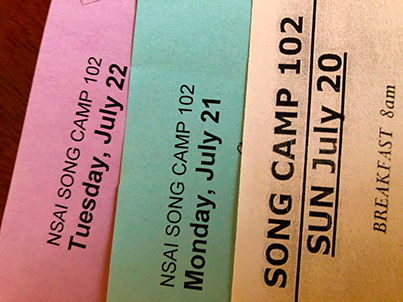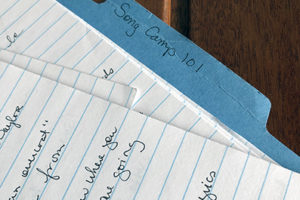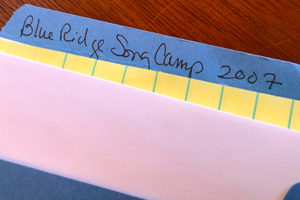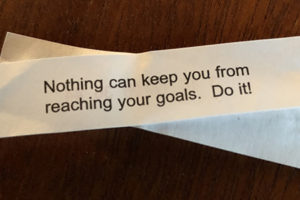In 2007 I went to three NSAI Song Camps in Nashville. They offered one more song camp which would take place July 20-22, 2008. For NSAI Song Camp 102, Jason Blume would be the main teacher. I had read several of his books as well as some of his articles on the BMI (Broadcast Music, Inc.) website. I looked forward to this opportunity of learning from him in person. He had singles on the Billboard’s Pop, Country, and R&B charts. His songs had been recorded by Britney Spears, Backstreet Boys, Collin Raye, the Oak Ridge Boys, and others.
Each song has its own secret that’s different from another song, and each has its own life. Sometimes it has to be teased out, whereas other times it might come fast. There are no laws about songwriting or producing.
— Mark Knopfler (b. 1949) British singer-songwriter, guitarist, and record producer. He was the lead guitarist, singer, and songwriter for the rock band Dire Straits.
NSAI Song Camp 102
Friday, July 18, 2008 I wrote this in my journal:
I have spent the evening getting ready to go to Nashville. I updated all my lyric sheets and lead sheets. This is a monumental task. I always forget how much so. Whenever I change anything in a song, I need to update my files. It is not too bad to keep up the computer files. But the printed versions are harder to manage. [Note to self: I need to make a regular routine to maintain my song files.]
The teachers for NSAI Song Camp 102 were Jason Blume, Rory Lee Feek, Liz Hengber, Phil Goldberg, Brent Baxter, Charley Stefl, and Chuck Jones.
NSAI Song Camp 102: Jason Blume’s Classes
Interesting distinction:
Jason was very helpful. One thing he did was make distinctions between songwriters and artists (singers). That helped clarify the different ways songs can be approached.
Some artists sing their own songs. If you are an artist, you use your songs to define who you are. These songs can be anything the artist wants. An artist chooses their songs whether or not they write them.
However, to get a song cut by an artist, the bar is higher for songwriters. Their songs are competing with a myriad of other songwriters to get the attention of some artist or producer. If you are trying to pitch a song, it has to be top notch.
Advice and Ideas:
- Use pure, conversational natural speech—although, artists writing their own songs may use more poetic language.
- The number one thing is to begin with a great idea and a unique, original way to express that idea.
- A strong opening line is important. Grab the listener in 10-20 seconds.
- We must evoke emotion in the listener. Lyrically and melodically songs must connect with the listener’s heart.
- Apply craft to the spark that starts in your heart.
- Look for ideas everywhere . . . in books, TV, movies, menus, magazine titles and articles . . . anything can spark an idea. Go to bookstores and look around for ideas.
Three tools to aid you in writing great lyrics:
- A — Action: use verbs and action words—make something happen in your song (don’t just write about how you feel)
- I — Imagery: show instead of tell. Use fresh, unique images—but natural
- D — Details: give enough details
One way to work:
- Pour out your soul into the song.
- Circle the wow lines.
- Go back and look at ones that are cliché or so-so. Change them even a little bit to make the words and images fresh.
- Look at the lyric as whole—am I telling a story or am I stating feelings?
- Give the audience a reason to LOVE your song.
Title:
- The title must feel satisfying. It is important for the title to pay off emotionally. Every word and line should lead the listener to the title.
Melody:
- It is the melody that makes the difference. This is what makes it a hit. Lyrics alone won’t do it.
Tools for writing great melodies:
- write the melody a cappella—focus on the melody, not the chord changes
- use fresh, unique rhythms for the melody
- great singers want great songs with big, long notes and a huge range
melodic range 10 notes avg. (1 oct. and a third)
a diva song has 11-12 notes
10 safe / 11 maybe OK / 12 notes needs an amazing vocalist - KISS—keep is simple and singable and don’t put too many melodic phrases in a song
- most often the chorus lifts and has the highest notes
- do not steal the thunder melodically before the chorus
- incorporate musical hooks throughout
- be completely obvious where the title is
- prosody—the sound of the music and lyrics go together
- vary rhythms from one part of the song to next (verse/chorus/bridge/etc.)
- repetition (3 times is typical for it to soak in)—sometimes melody with different chord changes is effective
- give them something they can remember—break it up into smaller phrases
- try different time signatures
- magic moments (e.g., “Send in the Clowns” or “Friends in Low Places”)
Final advice:
- Write what you love
- Write what you feel
- Write what you care about
- Luck is a huge thing, but you have to be prepared when luck comes your way.
NSAI Song Camp 102: Other Classes
Phil Goldberg’s Class
- Fine tune how you perceive what is happening. Hone your skills of observation especially as you watch people.
Songwriting Exercises:
Take a song you know and:
Keep lyric/write a new melody
Keep melody/write your own lyric
Take chord chart and write words and music over the chord chart
Take a groove and write over that
Chuck Jones’ Class
- Inspiration and craft are the two main components of songwriting.
- Rhymes help us remember things. Internal rhymes are good.
- Don’t use words just to use them. Make sure they are the right words.
- Make songs sound conversational.
- Songwriting is a process of elimination of deciding what not to write.
Rory Lee Feek’s Class
- Just show up and make sure it is genuinely you and authentic.
- Find your own angles. It is a do-it-yourself world now. There is no limit to what you can do. Use outside-the-box thinking.
Liz Hengber’s Class
- Only meet with publishers when you are ready.
- If they say, “Call me again” . . . Act on it! They want to see how hungry you are.
- Three songs maximum is good to come in with.
- Go to publisher’s showcases.
Brent Baxter’s Class
- Basically as songwriters, we write three to four minute movies in a song. Movies without visuals are disappointing and it is the same way with a song.
- Images are the furniture in the room. You don’t want to walk into an empty room.
- Don’t tell me. Show me.
- It helps to have a good visual in the opening line.
- You make songs stand out with your sense of details and images.
- Think about the situation and imagine the details. Put yourself in the character and think about what you would do.
- Study the genre you are interested in and see how images are handled in those songs.
Writing exercise:
- Write for ten minutes. Fill the entire page with only sensory images. Use a journal notebook and keep it available for use.
- For example: beach – salt, shells, bum, sun . . .
Charley Stefl’s Class
- You need to be prolific. Write everyday!
- Songwriting is a serious endeavor.
- It is better to have someone else pitch your songs. Charley uses a song plugger. They usually charge a monthly fee.
- It’s not what you know, but who you know. You should be out at clubs every night listening to music and meeting people. Make connections.
Song Critique
One of the highlights of this song camp was a critique session with Jason Blume. My song “In the Distance” was the one I chose for the critique.
Here’s what he said:
“What I am about to say is going to surprise you. It’s gorgeous. The accompaniment is exquisite. It’s a piece of art.” He suggested one word change. And, he said the vocal has to be perfect. He also said it needed a different title (now called “Alone”).
I was pleased that he actually recognized the song for being itself rather than comparing it to other songs (which has usually been my experience during critiques). “A work of art” is not usually attributed to a Nashville song. I know from the song camps that my songs are a little different from those of other attendees. “Work of art?” I don’t know. But, at least, this encouragement—along with that from other teachers I have met—has helped me continue to keep working.
This was the last song camp that I attended. In a summary next week, I will briefly describe other small songwriting workshops that I attended during the years 2007-2010.
Songs coming soon!










Leave a Reply
Your email is safe with us.